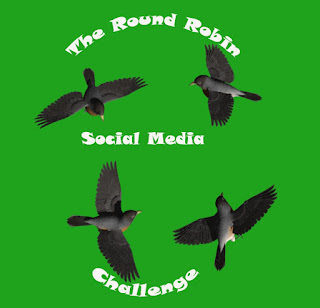Captain America of the 50s, Cold War Propaganda
In honor of Marvel comics hitting the 80 year mark, Marvel released many publications to celebrate the historic milestone. One thing they did was set of graphic novels to celebrate each decade by highlighting whatever it was they felt best displayed that era.
For the 50s they picked Captain America. I ended up with a copy of that graphic novel and have been reading it lately. It has been a very interesting read.
So first off you have to understand that at one point every story in this collection became non-canon as a decade later the Avengers would reveal that Cap was actually frozen during this time period, so none of these stories could have happened. This was then later ret-conned to make it a different man having taken on the role of Captain America because the government wanted to keep the legend alive.
Even with all that knowledge, this post will be about the stories on their own, completely independent from any continuity issues.
The first item of notice, as with any golden age comics, is that the stories are simple. Motivations and characters are all more or less black and white. Bad guys are bad because they are bad and they will do bad things. Good guys are good and do good things because they are good. There is no more depth of character than that. Also, in just about all the stories, the bad guys are communists. Some times we get a nation for them, but most of the time they are just communists, nothing more. And that is why they are bad guys.
Captain America is called the great 'spy-fighter' many times, because he is fighting against the evil enemy spies that wish to bring the whole world over to communism. One interesting blurb in there is 'One side fights with spies and traitors, the other with friendship and peace'. Especially now, with all we know of what took place during the cold war, from both sides, that line is pure propaganda. It is very telling about where we were during that era. This is not me taking sides here, just making a point about how both sides were playing a nasty game that had lot of questionable actions to them that at no point leaves our side looking heroic. Now days the Marvel comics do not sugar coat that time frame, and we have learned so much about all that really took place back then.
Another aspect that really caught my attention and bothered me greatly was the undeniable racism in some of the stories and art. Even the 'good' Chinese characters are racial stereotypes. They have really yellow skin and their eyes are just slits and they all have small mouths and large teeth, looking very inhuman.
Of course all the bad guys are just stupid and will fall for any trick the super smart Captain America comes up with on the fly, as he often leaves Bucky without knowledge of the plan. It really does get old at how gullible the would be villains are, falling for some really obviously tricks. And so many of the stories rely on those obvious tricks. Interestingly enough, there is no writing credit for these stories given, just 'Written by unknown' for the credits.
For me the main reason to read these stories is to see just how far we have progressed since then, socially, culturally and in our story telling. These kinds of stories would not be tolerated today if published as new. We expect much more. It does give you a great sense of our growth in 70 years.
Not sure why they picked Captain America to represent that time frame, as super hero comics were out of fashion at that point and this attempt at bringing them back failed. My guess is they were hoping to play on the recent serge in Cap popularity thanks to the movies, but this Cap is nothing close to the great character Chris Evans has given us.
I cannot recommend this collection, as it is not that good. The only reason to read it is for the historic understanding, nothing more. I doubt this was a popular graphic novel and I somewhat understand how I ended up getting it for free.

I think Captain America was an excellent choice to show what the state of the Comics and our country was like. The reason people want to read historical comics (or other media) isn't to be entertained by modern standards, but to see how things have changed. And this showed it well.
ReplyDelete